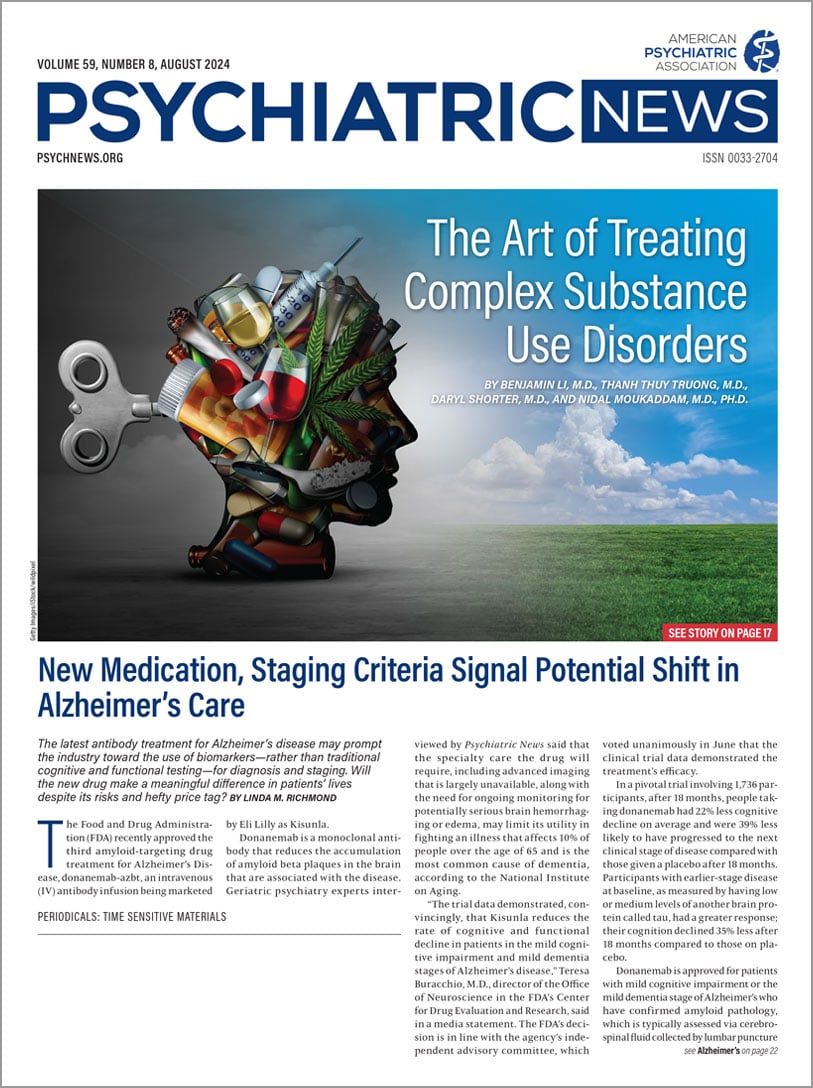Many communities add fluoride to their drinking water as a way of helping to prevent tooth decay. However, fluoride’s potential impact on the developing brain may be nothing to smile about: A
study in
JAMA Network Open suggests a link between prenatal exposure to fluoride and increased neurobehavioral problems in toddlers.
“Fluoride can cross the placenta and contribute to potentially harmful brain changes in the developing baby,” said lead author Ashley J. Malin, Ph.D., an assistant professor in the Department of Epidemiology at the University of Florida College of Public Health and Health Professions and University of Florida College of Medicine. “Findings from animal studies show that even at low levels, fluoride can exert harmful effects on brain areas responsible for learning, memory, attention, and executive function.”
Malin and colleagues examined data from 229 mother-child pairs who were part of the Maternal and Developmental Risks from Environmental and Social Stressors (MADRES) pregnancy study, a prospective pregnancy cohort consisting mostly of low-income Hispanic women in Los Angeles. The researchers calculated fluoride exposure from urine samples collected during the women’s third trimester of pregnancy and reviewed data from the Preschool Child Behavior Checklist, which the mothers completed when their children were three years old. The checklist scores comprise the following syndrome scales:
•
Somatic complaints such as constipation or headaches
The checklist also includes five scales based on DSM-5 diagnostic criteria for problems related to depression, anxiety, oppositional defiant behavior, autism spectrum disorder, and attention-deficit/hyperactivity disorder.
The researchers found that each .68 mg /L increase of fluoride in the mothers’ third-trimester urine was associated with nearly double the odds (OR 1.83) of their children scoring in the clinical or borderline clinical range for behavioral problems when they were three years old. The largest associations were for somatic complaints and emotional reactivity. Women with higher levels of fluoride were also more likely to report symptoms of anxiety and autism spectrum disorder in their children.
“These findings highlight the potential for low-level prenatal fluoride exposure to be developmentally neurotoxic, particularly because fluoride exposure levels in MADRES are typical for those living in fluoridated communities in North America,” Malin told Psychiatric News.
The researchers took the step of adjusting their analysis to account for exposure to lead, and the results were similar.
“Fluoride and lead exposure can co-occur. When fluoridation chemicals are combined with disinfecting agents such as chlorine during community drinking water treatment, they can leach lead from lead-bearing plumbing into the water,” Malin explained. “Therefore, we wanted to test whether co-exposure to lead could be the reason why we observed an association between fluoride and neurobehavior, since lead is known to be neurotoxic. However, the study findings showed that lead exposure [did not account for] the association between fluoride and neurobehavior.”
In the study, Malin and colleagues noted that because the data came from predominantly Hispanic mothers in one metropolitan area, the results may not be nationally representative. However, other studies in Canada and Mexico have also identified associations between prenatal fluoride levels and child behavior.
Malin said that given the overall findings, there may be a need for recommendations regarding how much fluoride pregnant women can safely consume.
“Additionally, an important policy change might be to label fluoride content in bottled water as well as in tea because green and black tea can be high in fluoride, so that pregnant women can make more informed choices about how much fluoride they are ingesting,” she suggested. “That said, the primary source of fluoride exposure among adults in the U.S. is fluoridated community drinking water and the foods and beverages reconstituted with it.”
This study was supported in part by funding from the National Institutes of Health, the National Institute of Environmental Health Sciences, and the U.S. Environmental Protection Agency. ■


